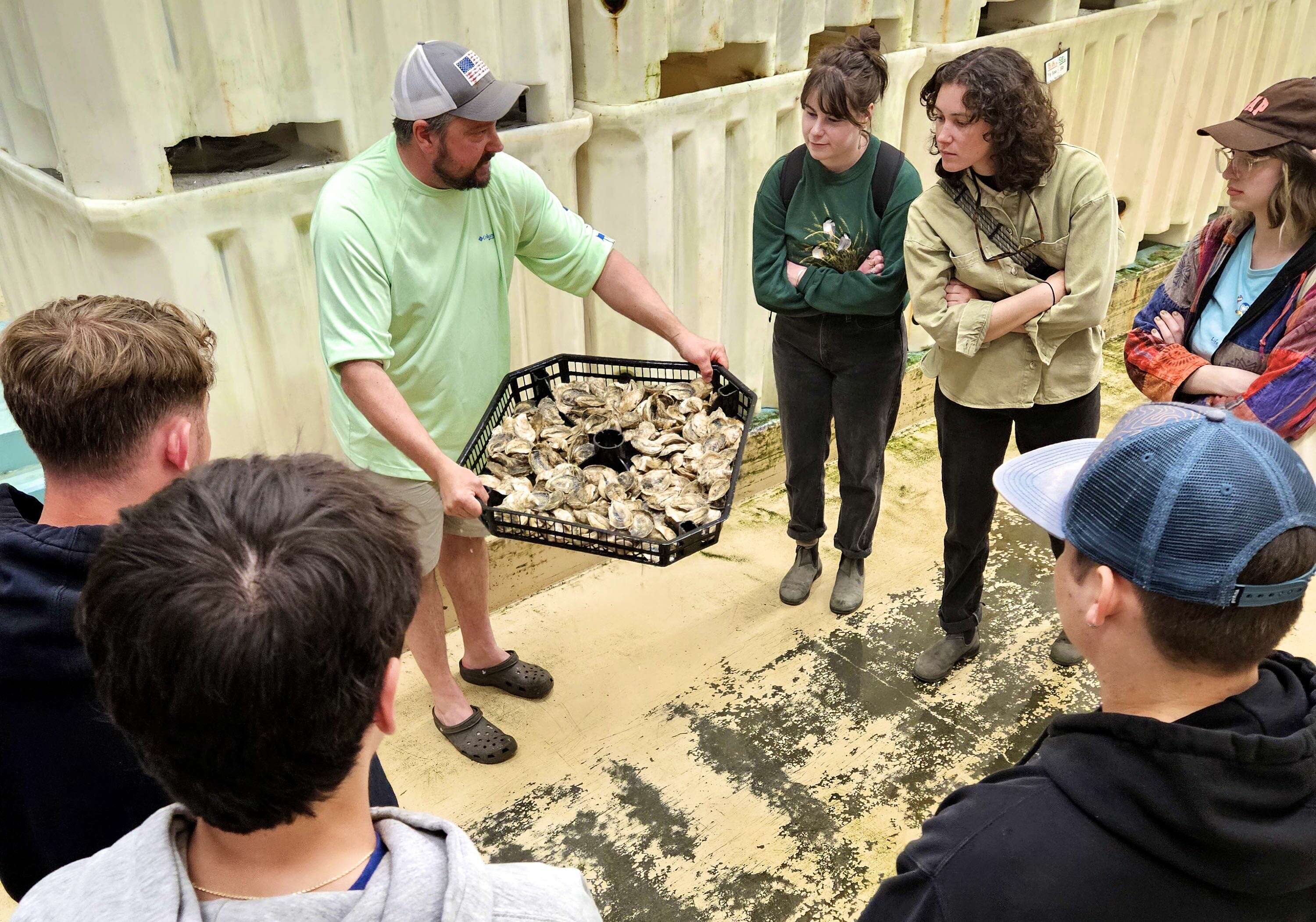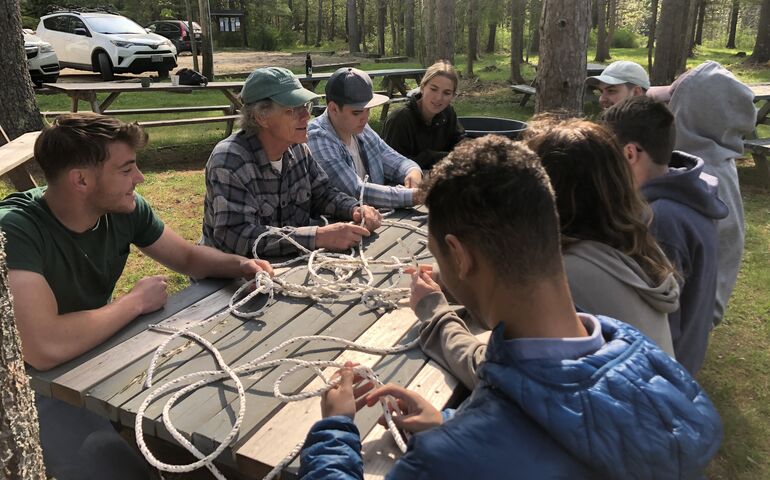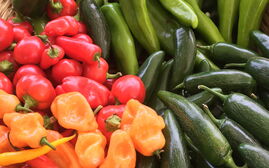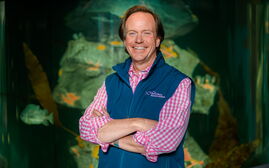
Aquaculture trainees learn the ropes in summer programs
 Photo / Courtesy Educate Maine
Summer aquaculture training programs in Maine teach a variety of skills, including rope tying, shown here.
Photo / Courtesy Educate Maine
Summer aquaculture training programs in Maine teach a variety of skills, including rope tying, shown here.
New aquaculture apprenticeship and pre-apprentice programs are getting clear signals that the industry is on to something when it comes to recruiting and training workforce.
This summer, 19 pre-apprentices are working on 18 aquaculture farms along the coast. And people have moved from as far as California and Alaska, including former commercial fishermen, to enroll in the apprentice program.
The programs are a collaboration of FocusMaine, Educate Maine, Gulf of Maine Research Institute and Maine Aquaculture Association.
The two experiential learning programs aim to create a career pathway into Maine’s aquaculture sector.
“These new, certified aquaculture apprenticeship programs are a result of years of accomplishments steadily building upon each other through the power of partnerships and strategic efforts and investments,” said Andrea Maker, co-chair of FocusMaine.
Pre-apprentices
The pre-apprentice training opportunities are called Aquaculture Pioneers, launched in 2022 with grant support from the Builders Initiative, a Chicago-based firm.
The program connects pre-apprentices with employers along Maine’s coast for 10 to 12 weeks of mentored and paid work at an aquaculture farm, hatchery or business. The program reimburses employers for the cost of the pre-apprentice wages.
Perks for participants include a two-day bootcamp led by sector leaders that includes introductory boat safety and knot-tying training as well as participation in Maine Career Catalyst, a summer professional development program, and a ticket to the Annual Student Symposium for the Advancement of Maine’s Blue Economy.
“Pre-apprenticeship and registered apprenticeship programs provide workers with unique opportunities to discover and explore the aquaculture sector in a structured, experiential way,” said Kate Howell, Director of Workforce Partnerships at Educate Maine. “Individuals can participate regardless of whether they’ve previously been in the industry.”
Madeleine Point Oyster Farm in Yarmouth joined Aquaculture Pioneers as an employer partner this year.
“Our farm has benefited tremendously from hosting a pre-apprentice through the Aquaculture Pioneers program,” said the company’s founder, Thomas Henninger.
Michael Scannell, a pre-apprentice working this summer at Madeleine Point, said the hands-on experience has had a huge impact on him.
“It’s exciting to see all of the ventures popping up within my home state, which makes me feel like I don’t have to travel far in order to find a career on the water,” Scannell said.
Apprentices
The pre-apprenticeship is connected to an apprenticeship program, for shellfish and seaweed farming, that launched this spring.
Sponsored by the Maine Aquaculture Association in partnership with the Gulf of Maine Research Institute and Educate Maine with funding support from the U.S. Department of Agriculture’s National Institute of Food and Agriculture, the 2,000-hour paid apprenticeship program offers Maine Department of Labor certified apprenticeships at five farms across the midcoast and southern Maine.
Over a span of one year, apprentices gain industry-specific skills through on-the-job learning/mentorship and 144 hours of classroom education at Southern Maine Community College. Learning outcomes include organizational and safety protocols; vessel and vehicle operation; use and maintenance of tools and equipment; shellfish and seaweed production, management, and health, and food safety and regulation.
“Apprentices, including former commercial fishermen, have moved from as far as California and Alaska to capitalize on this first-of-its-kind opportunity to build a career in aquaculture in Maine,” said Christian Brayden, project manager at Maine Aquaculture Association.

Occupational standards
The program was designed using occupational standards for aquaculture training providers, developed by an earlier collaboration designed and sponsored by FocusMaine between Gulf of Maine Research Institute, Maine Aquaculture Association and Educate Maine.
“The occupational standards have received high praise for setting the first standard in U.S. aquaculture,” said Brayden. “They are being reproduced and implemented in states with aquaculture across the country, where they will serve as guides for further workforce development.”
Similarly, the Maine Aquaculture Workforce Development Strategy, an analysis that documents current and future labor needs of Maine’s developing aquaculture sector, charted the course for Maine to establish a comprehensive workforce training system.
"The launch of the aquaculture apprenticeship and pre-apprenticeship programs are a pivotal milestone that aligns with and realizes the goals outlined in the Maine Aquaculture Workforce Strategy,” said Carissa Maurin, GMRI's aquaculture program manager.














0 Comments